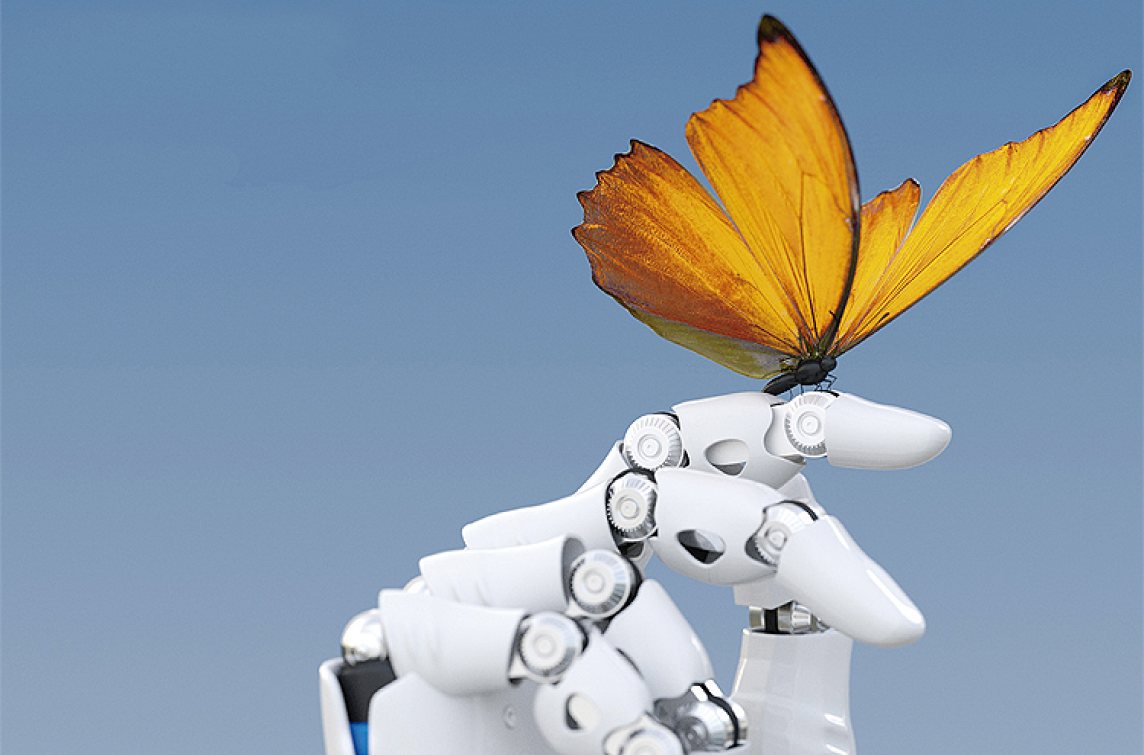Thinkers' Programme AI as an agent of change

Stuurgroep van het Denkersprogramma AI as an Agent of Change
Documentation
Events
Ine Van Hoyweghen (KMW, KU Leuven) and Marc De Mey (KMW, UGent), both members of the Class of the Humanities, took the initiative to organize a Thinkers Cycle in 2023 on the theme "AI as an agent of change" with Helga Nowotny as international expert. The cycle aims at an interdisciplinary collaboration within the Academy with representatives from all four Classes, but also beyond with numerous external Flemish experts.
The topic AI is very hot and appears in almost every issue of the biweekly announcements of VARIO (Flemish Advisory Council for Innovation and Entrepreneurship). AI is also the subject of Flemish and Belgian policy (Flemish Policy Plan for Artificial Intelligence (2019) and the National Convergence Plan for the development of Artificial Intelligence (2022)). Several Academy projects focussed on the topic and reported in the series of the Position papers: “Artificial Intelligence, towards a fourth industrial revolution” (2017) and “Societal values in digital innovation: who, what and how?” (2019).
Helga Nowotny is Professor Emeritus at ETH Zurich in Science and Technology Studies, President of the European Research Council (ERC) from 2010 to 2013 and foreign member of the Class of the Humanities. She has been following developments in AI for more than half a century. The specific title of this project "AI as an agent of change" is inspired by Elisabeth Eisenstein's much discussed "The printing press as an agent of change" (1979), about the great impact of the printing press on culture, religion and science. The social impact of recent developments in AI is just as far-reaching. This impact is partly due to the power of AI algorithms in the hands of multinational tech companies. In addition, the use of predictive algorithms in various social domains (education, work, insurance, health care, justice, social policy, ...) leads to concerns about new forms of (algorithmic) discrimination and exclusion. Nowotny points to an inherent paradox of our trust in AI: While we try to use AI to better control the future, AI, through its predictive algorithms, reduces our pathways to shape such a future. AI innovations must therefore be accompanied by our human capacity as an agent of change to maintain a shared, open future.
This Thinkers Cycle will focus on the most recent developments in the field of artificial intelligence and on the question of their implications for our view of humanity (autonomy, self-determination, the need for a 'digital humanism'). In collaboration with Helga Nowotny, the aim is to examine, on the basis of a broad reflection, proposals for supplementary policies that are developed internationally to stimulate the productive integration of AI in society. The proposed project will attempt to provide contributions and advice regarding the objectives proposed by the Flemish government for 1. strategic basic research, 2. training needs, 3. ethical challenges, and 4. outreach to the general public.
Closing event: Monday November 20th, 2023.

Helga Nowotny is Professor emerita of Science and Technology Studies, ETH Zurich; founding member and former President of the European Research Council.
She has held teaching and research positions at universities and research institutions in several countries in Europe and continues to be actively engaged in research and innovation policy at European and international level. Among other, she is currently member of the Board of Trustees of the Falling Walls Foundation, Berlin; Vice-President of the Lindau Nobel Laureate Meetings; Senior Fellow at the School of Transnational Governance, EUI, Florence; member of the Council IeA de Paris; member of the Austrian Council for Research and Technology Development; Chair of the Scientific Advisory Board of the Complexity Science Hub: Vienna and was Visiting Professor at Nanyang Technological University, Singapore. She received multiple honorary doctorates including from the University of Oxford and the Weizmann Institute of Science in Israel.
She has published widely in science and technology studies, STS, and on social time. Her latest publication “In AI we Trust. Power, Illusion and Control of Predictive Algorithms” has been published by Polity Press in 2021.

